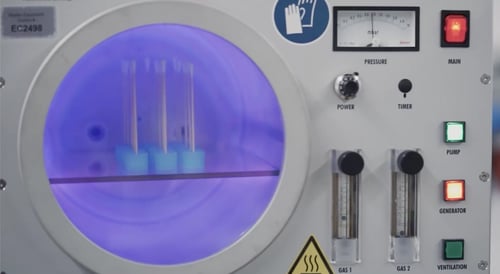When plasma etching a surface to create patterns, for example manufacturing printed circuit boards, something called a photoresist or etching mask is put on the surface being treated to map out the pattern. The plasma ions will then etch around it. After this first step is done the photoresist needs to be removed from the surface without removing any other part of the surface leaving behind just the desired pattern on the surface of the material. This second step is called
plasma ashing. Plasma ashing is a necessary part of the production of printed circuit boards which are critical components in almost all electrical devices.
Plasma ashers are also called
plasma etchers because the same machine can be used to execute both processes.
How is Plasma Ashing Done?
Using a Thierry
low-pressure plasma system you can
clean, etch, and
plasma ash surfaces. This is accomplished by taking advantage of the characteristics of different types of plasma.
Plasma ashing a surface requires introducing oxygen (O2) into the vacuum chamber which then ionizes and becomes oxygen plasma which can be used to oxidize or
plasma ash the photoresist. This assists in the removal of the etching mask.

